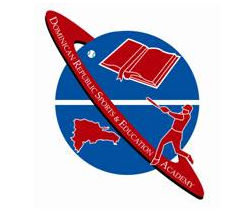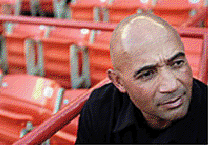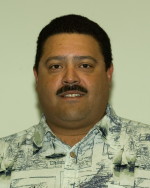Visits: 0
The Venezuelan Connection – The Dominican Republic is second only to the United States in delivering players to Major League Baseball, but coming in third – and gaining – is Venezuela. The dynamics of Venezuelan baseball are shifting, increasing the importance of the Dominican Republic in the development of Latin American players.
Last season, 86 Dominican players were listed on Major League Baseball Opening Day rosters; Venezuela contributed 62. The previous year the Dominican Republic supplied the same number, 86, while Venezuela had 58.
At one point, 23 Major League Baseball teams had training facilities in Venezuela; today the number is down to just four – the Philadelphia Phillies, the Detroit Tigers, the Seattle Mariners and the Tampa Bay Rays. For a variety to reasons, the other MLB teams have opted to bring Venezuelan prospects to the Dominican Republic where all 30 teams train players.
Rafael Pérez, head of Major League Baseball Operations in the Dominican Republic and Latin America, said the chief reason for the change is economics; it cost four times more to train a player in Venezuela, more to house and feed players, more to bring in supplies and equipment, more to pay coaches, trainers and staff. “It is just cheaper to scout players in Venezuela,” he said, “and bring them to existing facilities in the Dominican Republic. The cost of operating an academy is a fraction.”
Several people I talked with played down the safety issue, but there is no doubt Venezuela is a dangerous country. It leads Latin American countries in the number of murders committed annually, with a figure four times higher than Mexico, twice as high as Columbia.
The fact that a Major League Baseball player from Venezuela, Wilson Ramos, a catcher with the Washington Nationals, was kidnapped a few months ago and held for ransom, certainly didn’t add to the appeal of the country. Ramos was rescued unharmed by the Venezuelan army.
Add to that what Rene Gayo, the Pittsburgh Pirates director of Latin American scouting, described as an anti-American attitude and the Venezuelan exodus is further explained. “With the anti-American sentiments and [Venezuelan President] Hugo Chávez, and radical dialogue, people are moving out,” he said.
The Pirates closed down their Venezuelan academy last year because of the political climate and the danger factors, according to Gayo. “Hoodlums would come on payday,” he said, “and rob everybody at the academy. Over the years, little by little, ever since Mr. Chávez took power, indications are that things are going in an opposite direction. Either Chávez gets out of power, or he will make it into the Cuba of the 21st Century.”
He added, “Our owner made a significant investment in the Dominican Republic. We wanted to streamline, so it was economically intelligent to do what we are doing. By certain measures, all that really matters is how well the players play.”
Major League Baseball recently hosted a talent showcase featuring the top 25 unsigned prospects from both Venezuela and the Dominican Republic; those players can be signed July 2.
Gayo said that forcing players from the two countries to compete head-to-head hasn’t created additional concerns or problems. “There has always been a sense of nationalism of competition in Latin America,” he said, “particularly at the entry level. But they come to the U.S. united by common obstacles of language and culture, so they are equal there.”
The four teams with operations in Venezuela did not respond to requests for comment.
Same Name Game – Dominican authorities have arrested yet another Dominican baseball player on charges of faking his identify, this time for more than 11 years.
Fausto Carmona, a pitcher with the Cleveland Indians, was outside the U.S. consulate in Santo Domingo when he was busted for falsifying both his name and birth date when he was signed as a free agent in 2000. Carmona’s real name is Roberto Hernández Heredia and he is 31 years old, three years older than he reportedly led the Indians to believe.
The Indians placed Carmona/Heredia, who was released on bail, on baseball’s restricted list pending the outcome of his case; he will not be paid until free of his legal predicament. He was schedule to earn $7 million in the upcoming season.
Carmona’s arrest comes only a few months after Florida Marlins pitcher Leo Núñez – who is actually Juan Carlos Oviedo – revealed he played under an assumed name and age for 10 years. He was arrested briefly but released after authorities in the Dominican Republic said he would not be charged in the investigation of his use of fake documents. He was also placed on the restricted list.
I have been told that more than two dozen current major league and minor league players from the Dominican Republic are in the same fix as Carmona/Heredia and Núñez /Oviedo, and, like them, failed to come forward when MLB offered amnesty in 2008 to players who admitted falsifying their names or ages.
Major League Baseball has been plagued for years with age and identity fraud problems in the Dominican Republic and initiated a major reform movement nearly two years ago. While the problem has been curtailed, it has not been eliminated as the Núñez and Carmona cases demonstrate.
Major League Baseball rules provide a year suspension for minor leaguers who commit identity fraud; major leaguers are penalized at the discretion of the commissioner’s office. But the legal issue of a forged identity can bar a player from receiving a U.S. visa, effectively ending his career.








You must be logged in to post a comment Login